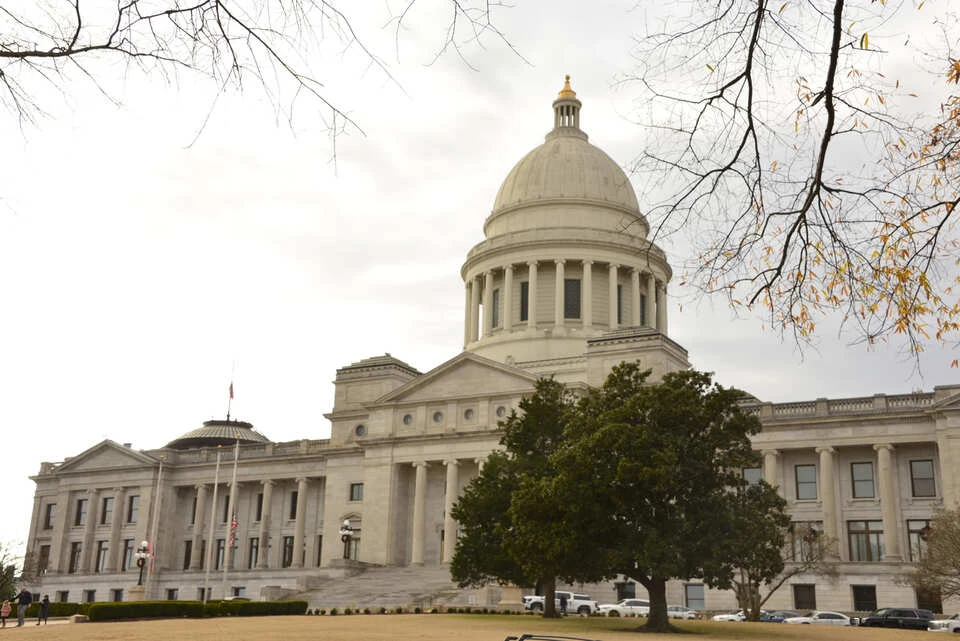The future of online sweepstakes gaming in the U.S. is at a critical turning point. In a major crackdown, Maryland and Mississippi lawmakers are moving to ban online sweepstakes gaming, over concerns about unregulated gambling, consumer risks, and potential fraud. But while those states clamp down, Arkansas is taking a different route, pushing to legalize and regulate the very industry its neighboring states want to outlaw.
The legislative battle reflects the different ways through which various states see and handle the rapidly evolving online gaming landscape. While some lawmakers see a legal loophole that needs to be closed, others view it as an emerging market with economic potential. With legislative decisions pending, the outcome in these states could set a precedent for the future of sweepstakes gaming in the U.S.
Maryland and Mississippi Ban Sweepstakes Gaming
For years, sweepstakes gaming has operated in a legal gray area, allowing players to engage in casino-style games using virtual currency instead of direct cash wagers. But lawmakers in Maryland and Mississippi say enough is enough.
Maryland

On March 12, 2025, the Maryland Senate unanimously passed Senate Bill 860 (SB 860) with a 47-0 vote, which is actually rare to see in a very divided and politically charged landscape. Introduced by Senator Paul Corderman, the bill seeks to ban online sweepstakes gaming entirely, while enforcing strict penalties on those involved.
Under SB 860, any individual or business found running, promoting, or participating in online sweepstakes gaming could face up to three years in prison and fines ranging from $10,000 to $100,000. The bill also gives the Maryland State Lottery and Gaming Control Agency the authority to deny or revoke gaming licenses linked to sweepstakes operations.
Supporters argue that sweepstakes platforms exploit regulatory loopholes, operating without oversight and posing risks to consumers, particularly through offshore sites. However, critics question how the bill will be enforced, especially since many of these platforms operate beyond Maryland’s jurisdiction.
Mississippi

Now Mississippi is taking an even harsher stance. On the same day Maryland advanced its bill, the Mississippi House of Representatives passed Senate Bill 2510 (SB 2510) with an 83-19 vote. But Mississippi lawmakers have added a twist, the bill also includes a provision to legalize online sports betting.
Under Senate Bill 2510 (SB 2510) in Mississippi:
- Sweepstakes gaming would be fully banned, with violations upgraded to felonies, carrying penalties of up to 10 years in prison and $100,000 in fines.
- The bill expands Mississippi’s existing ban on sweepstakes cafes to include online operators, which closes loopholes that previously allowed digital platforms to operate.
- Before passing the bill, the House added a provision to legalize online sports betting, which now complicates its fate. The bill must return to the Senate for reconsideration, where lawmakers will decide whether to approve it with the sports betting amendment or remove the provision before final passage.
Supporters argue that sweepstakes gaming creates opportunities for fraud and money laundering, particularly with offshore operators avoiding state oversight. However, critics say escalating violations to felonies is an excessive response.
The unexpected addition of online sports betting legalization has also created division, as some lawmakers may now vote against the bill, not because of sweepstakes gaming, but to prevent the expansion of sports betting.
Arkansas Regulation Instead of Bans

While Maryland and Mississippi seek to shut down sweepstakes gaming, Arkansas sees a lucrative opportunity.
In February 2025, Senate Joint Resolution 8 (SJR8) was introduced, proposing to legalize and regulate online casinos and sweepstakes gaming in the state. Lawmakers backing the bill argue that banning sweepstakes games only pushes them underground, while regulation could bring in millions in tax revenue.
Why Arkansas Wants to Legalize It:
- Tax Revenue: Projections estimate that a regulated online casino and sweepstakes market could generate over $30 million in tax revenue annually. Lawmakers see this as a way to turn an existing industry into a financial asset rather than an enforcement challenge.
- Consumer Protections: Supporters argue that banning sweepstakes won’t stop players from participating, it will just push them to unregulated sites. By legalizing the industry, Arkansas can enforce age verification, deposit limits, and responsible gambling measures to protect consumers.
- Casino Industry Support: Unlike Maryland and Mississippi, where brick-and-mortar casinos oppose sweepstakes gaming, Arkansas’s casino operators support the move. Many operators see legalization as an opportunity to launch their own online platforms, rather than losing market share to unregulated sites.
- Competing with Neighboring States: Louisiana, Tennessee, and Missouri already have expanding gambling markets. Arkansas doesn’t want to lose players (and tax dollars) to out-of-state platforms.
If SJR8 passes, Arkansas would become the first state to fully regulate sweepstakes gaming, setting a precedent for other states to follow.
Industry Reactions: What’s at Stake?
The debate over sweepstakes gaming has divided the industry, with regulators and operators clashing over its future. Similar battles have played out before, like when online poker faced crackdowns in the early 2010s, many platforms moved offshore, leaving players with fewer protections. Daily fantasy sports saw a similar fight, with states initially banning it before shifting toward regulation.
Now, casino operators in regulated states argue that sweepstakes platforms operate outside the law, tapping into state revenues while avoiding gambling taxes and oversight. They claim that without intervention, these platforms will continue to undermine licensed casinos.
On the other hand, sweepstakes gaming companies warn that bans won’t stop players, it will just push them toward unregulated sites. Without a legal framework, offshore platforms could thrive, leaving consumers without safeguards.
For players, sweepstakes casinos offer a low-risk, entertainment-driven alternative to traditional gambling. But with bans looming, one question remains: Will players migrate to riskier, unregulated markets, or will the sweepstakes model disappear entirely?
What’s Next?
- Maryland’s SB 860 is heading to the House of Representatives’ Ways and Means Committee for further debate.
- Mississippi’s SB 2510 must now return to the Senate for final approval. Will lawmakers embrace online sports betting in exchange for banning sweepstakes?
- Arkansas’ SJR8 is under review, with lawmakers weighing whether the economic benefits outweigh potential risks.
If these bills pass, Maryland and Mississippi could become the first states to ban online sweepstakes gaming outright, while Arkansas could pave the way for a fully regulated industry. The stakes couldn’t be higher.
One thing is certain: the fight over sweepstakes gaming is just getting started.
Final Thoughts
- The debate over online sweepstakes gaming boils down to two key questions:
Should states crack down and eliminate sweepstakes gaming, or regulate and profit from it? - Will more states follow Maryland and Mississippi’s hardline stance, or will Arkansas set a new trend toward legalization?
With millions of dollars, legal battles, and political influence at play, this is one gambling showdown worth watching.

Blaise Luis

